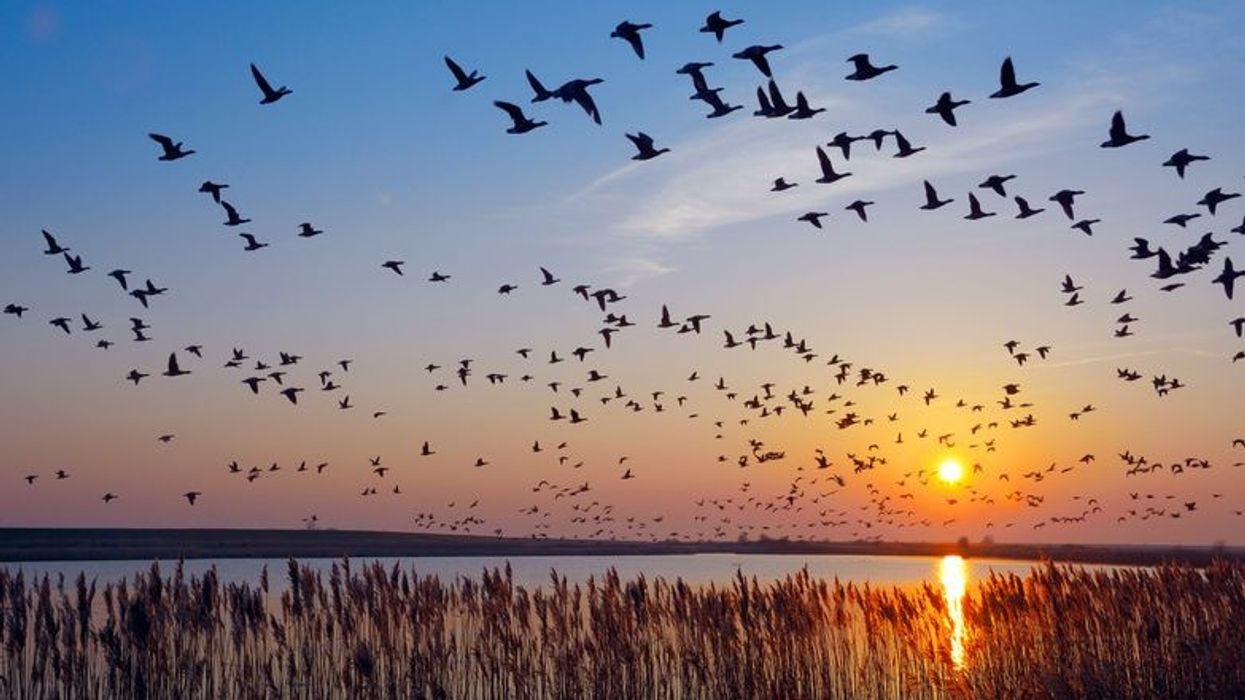According to a senior official from the Wildlife department, the wetlands of Kashmir were visited by a record-breaking 13 to 14 lakh birds from Eastern Europe and Central Asia this winter.
The wildlife department conducted a census, which revealed the notable rise in bird arrivals, attributed to the efforts made to revive and revitalise the wetlands, which serve as the winter habitat for these feathered visitors.
"We have seen a remarkable increase in the number of certain species of birds and the results are encouraging, especially with regard to the areas that used to be the primary habitats of these migratory birds, such as Hokersar, Hygam, and Shallabugh," Chief Wildlife Warden Rashid Naqash said.
The official reported that around 13 to 14 lakh migratory birds visited the wetlands of Kashmir, including both protected areas under the jurisdiction of the wildlife department and those outside it.
"If we compare this number to the previous years -- the last three to four decades -- this is the highest recorded number," Naqash added.
Most of the birds spotted at the wetlands comprised of ducks, waders, and water birds.
The officer added that the Wullar Conservation Management Authority had undertaken commendable measures to enhance the habitat by reviving the heavily silted zones, thus drawing a substantial number of migratory birds.
According to the official, Wullar was once known to be one of the most significant areas for hosting a large population of migratory birds.
However, this year witnessed the return of birds that used to frequent the wetlands or the Wullar lake 30 to 40 years ago, including long-tailed ducks and skimmers that hadn't been seen in decades.
When questioned about the correlation between the Russia-Ukraine war and the increase in avian visitors, Naqash stated that there was no unusual trend in the birds' arrival or departure. "Regarding the timing of their arrival or departure, it seems quite normal in our wetlands. Any theory on a good number of bird arrivals needs to be supported with solid scientific data," he remarked.
According to a range officer (lakes) Sajid Farooq, the Wildlife department has created a five-year programme to revive the wetlands.
Farooq stated, "In protected wetlands, we have taken different measures for rejuvenation, such as restoration of breaches etc., so that the migratory birds that visit the wetlands during the winter months get a conducive atmosphere.”
He added that field staff begins maintenance work in March to prepare the habitat before the arrival of migratory birds.
Farooq also said the department is cracking down on poaching to protect the birds. The Wildlife Act of India has banned poaching, and control rooms are set up at every range. The forest protection force also helps with patrolling. The department has seized eight to 10 guns and registered an equal number of FIRs this year.
(With inputs from PTI)




